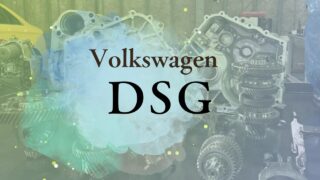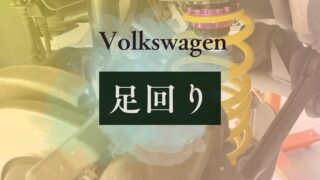Volkswagen (VW) vehicles are renowned for their smooth acceleration and excellent fuel efficiency.
A critical component supporting these qualities is the throttle body.
The throttle body controls the amount of air entering the engine, directly impacting engine response and performance.
Over time, dirt buildup, wear, or electronic failures can lead to throttle body issues, which can drastically affect driving performance and fuel economy.
This guide explains the common symptoms, causes, risks, repair costs, and prevention tips for throttle body problems in VW vehicles.
VW Engine Problem Guides
What Is a Throttle Body?
The throttle body is an air valve assembly located in the engine intake system.
It uses a butterfly valve to control airflow into the engine based on how much the driver presses the accelerator pedal.
Modern VW vehicles use electronic throttle control (ETC) (sometimes called “drive-by-wire”) for more precise and responsive engine management.
Symptoms of a Failing Throttle Body
Signs of throttle body issues include:
1. Unstable Idling
The engine revs erratically, fluctuates unexpectedly, or vibrates excessively at idle.
2. Sluggish or Hesitant Acceleration
The car feels underpowered or delayed when accelerating.
3. Engine Stalling
Sudden engine shutdown at traffic lights or while parking—extremely dangerous if left unchecked.
4. Check Engine Light
Throttle body-related faults can trigger an engine warning light.
5. Poor Throttle Response
There’s a noticeable delay between pressing the pedal and engine reaction.
Main Causes of Throttle Body Problems in VW Vehicles
• Carbon Buildup
Oil vapor and blow-by gases cause dirt and carbon deposits inside the throttle valve, restricting airflow.
• Electronic Component Failure
Malfunctions of internal motors or throttle position sensors in electronic throttle bodies.
• Wiring or Connector Issues
Damaged or corroded connectors and wiring can prevent signals from reaching the ECU.
• Wear and Aging
Over time, wear to the shaft or seals may cause air leaks and poor valve operation.
Risks of Ignoring Throttle Body Problems
Leaving a failing throttle body unchecked can result in:
Light buildup can often be resolved with cleaning, but ignoring symptoms can lead to expensive throttle body replacement.
Typical VW Throttle Body Repair Costs
| Service | Estimated Cost (incl. tax) | Notes |
|---|---|---|
| Throttle body cleaning (without removal) | ¥10,000–20,000 ($70–135) | For minor carbon buildup |
| Throttle body cleaning (with removal) | ¥20,000–40,000 ($135–270) | More thorough internal cleaning |
| Throttle body replacement | ¥80,000–150,000 ($540–1,000) | Genuine OEM part |
| Throttle adaptation reset | ¥5,000–10,000 ($35–70) | Required after cleaning or replacement |
Early inspection can often avoid expensive replacements.
DIY Tips for Prevention
You can extend throttle body life with simple checks:
• Pay attention to vibrations at idle
Unusual engine shaking can be an early warning.
• Request intake system cleaning during service
Ask mechanics to inspect and clean the throttle body as part of routine maintenance.
• Keep up with regular oil changes
Old oil increases contamination that contributes to throttle body fouling.
• Never ignore check engine lights
Prompt diagnostic scans can detect small issues before they become big problems.
Conclusion: A Smooth VW Ride Starts with a Healthy Throttle Body
A properly working throttle body ensures the smooth acceleration and fuel efficiency VW vehicles are known for.
Although rarely visible, a clean and functional throttle body prevents poor fuel economy, dangerous stalling, and costly repairs.
By staying alert to early symptoms and committing to regular inspections, you can keep your VW running at its best for years to come.
VW Engine Problem Guides








コメント